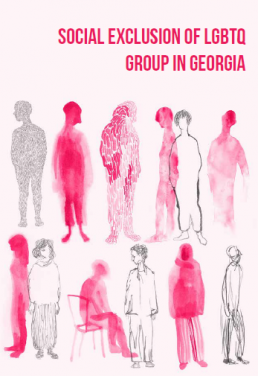საერთო ცხელი ხაზი +995 577 07 05 63


The Human Rights Education and Monitoring Centre (EMC) began to study the LGBTQ group's experiences of social exclusion and violence in 2019 as part of this research. The aim of the research was to identify the main socio-economic barriers facing the LGBTQ group and to develop policy measures needed to address the key issues.
The aim of the study was to investigate the determinants of social vulnerability and symptoms of social exclusion, which was achieved by identifying the interaction of aspects of vertical and horizontal inequality. These were based on the characteristics of social and economic exclusion of the LGBTQ community, and identification of political participation, agency, and inclusive involvement, as well as opportunities to engage in activism and set their own agenda.
Using the broad social exclusion framework, this study seeks not to define the exclusion of the LGBTQ community in terms of purely economic factors, but to focus on forms of exclusion that result not only in monetary poverty, but also in social deprivation contingent upon livelihood, demonstrating, among other things, deprivation of agency and exclusion from equal citizenship. The study shows that members of the LGBTQ community are unable to enjoy an equal and adequate life, and their chances of living freely are substantially limited in relation to all human rights.
The present study was prepared within the framework of the project – “Strengthening the Rights of LGBTQI People, Advocating for Sexual and Reproductive Health and Supporting Queer Activists”.
The views expressed in this study reflect the views of the Human Rights Education and Monitoring Centre and may not express the position of Swedish Association for Sexuality Education (RFSU).
The website accessibility instruction